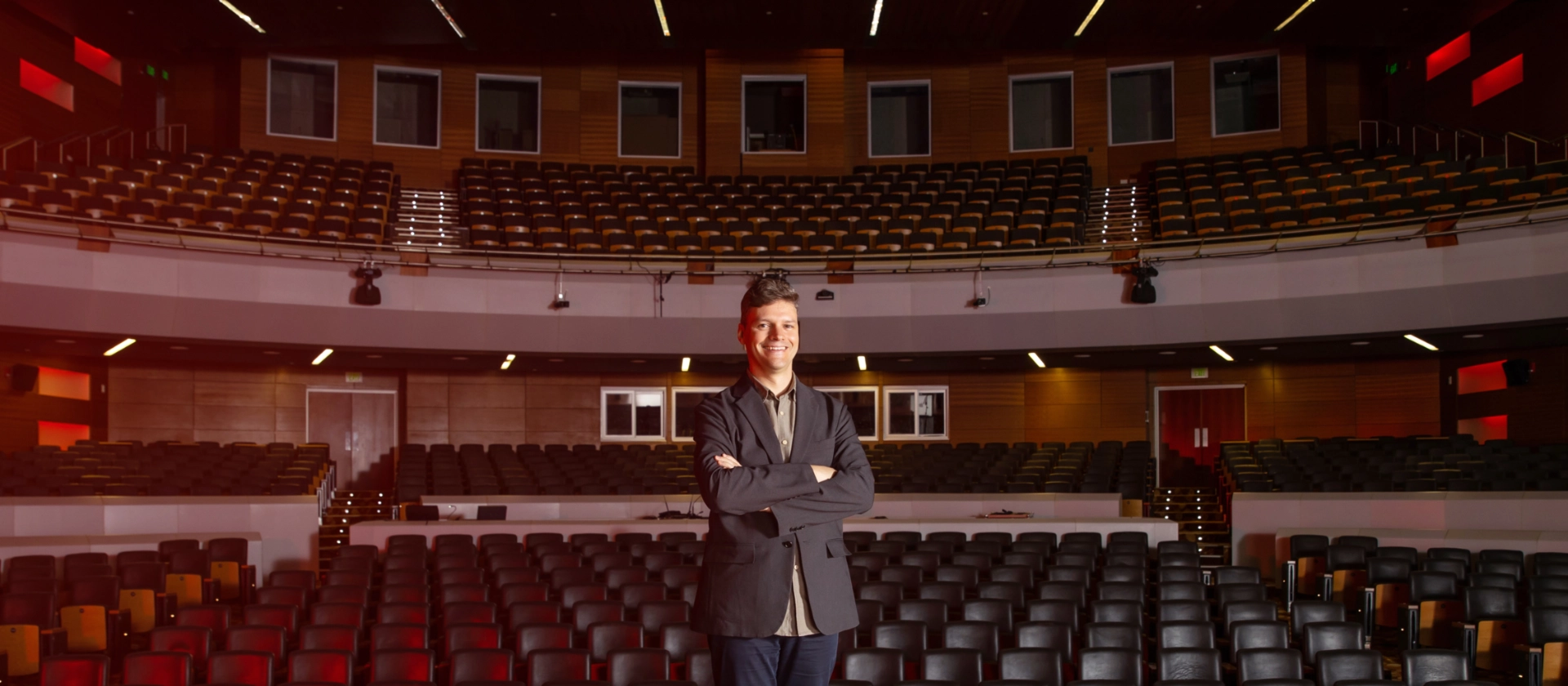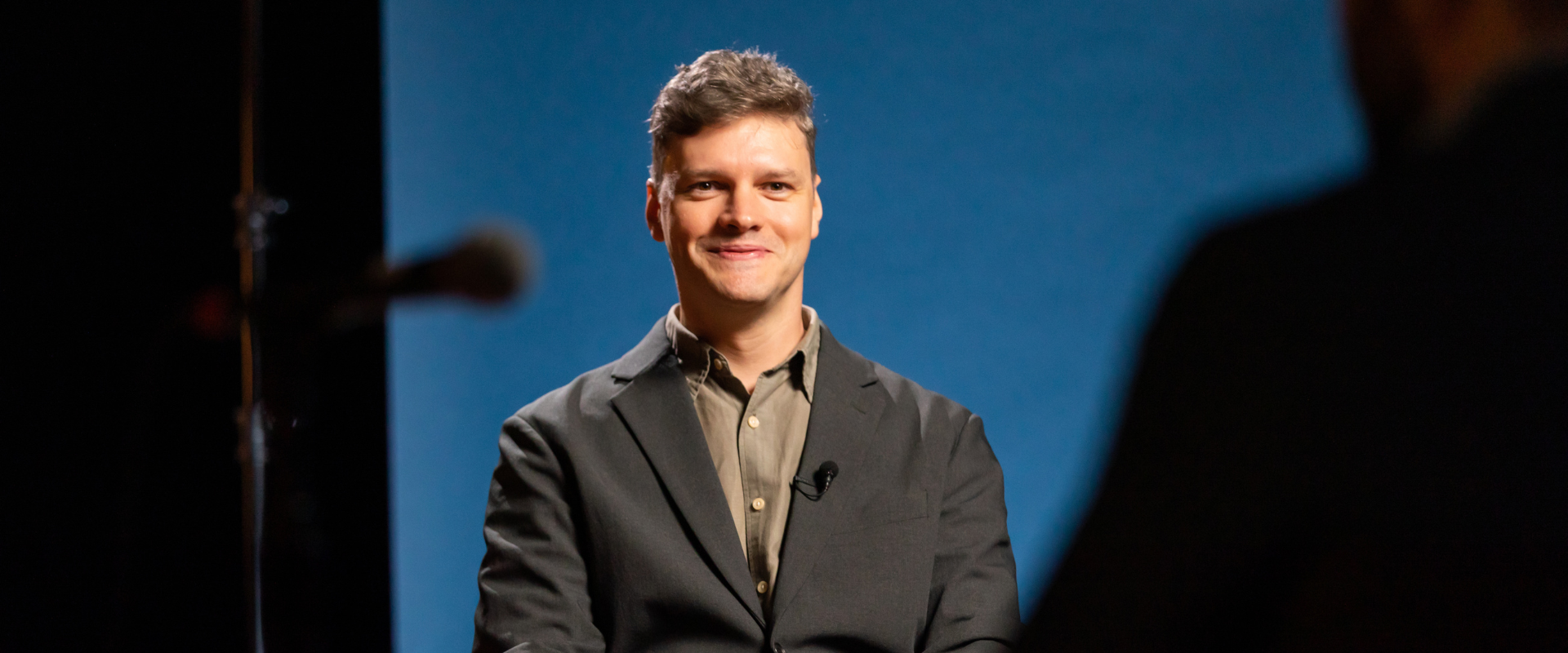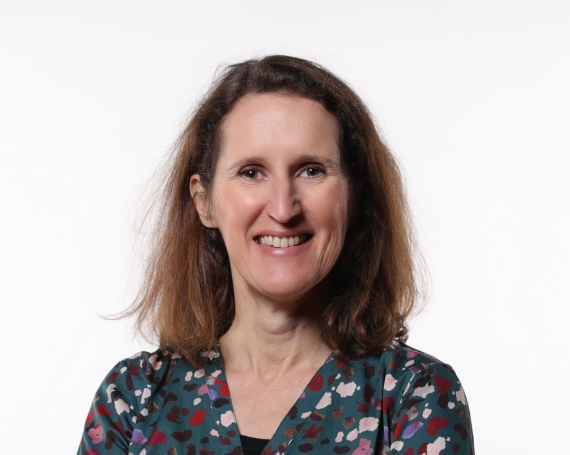
Marco Canini
Associate Professor of Computer Science

In his work, Canini remains driven by the curiosity he’s cultivated since his childhood…
Creativity and Curiosity: The Building Blocks of Computer Science
Professor Marco Canini has a lifelong fascination with understanding how systems function which began as it does for many children – with Lego. He progressed quickly from the simple kits to the most intricate, learning fundamental concepts that heightened his curiosity just as household computers were beginning to appear on the market. “I was fortunate in the sense that my father bought a computer very early on,” he recalls fondly, “probably in 1991 or 1992, and immediately I had a passion for it.” The video games available then were rudimentary at best and Canini soon tired of playing them; he wanted to create his own instead.
Having learned the principles of coding, his attention turned to the computer itself and the components within, and he soon became “fascinated by the concept that computers can talk with one another if you allow them to do so.” Canini remembers getting his first Internet connection in 1996 and how he felt part of something that was evolving extremely quickly; “it was a technological development,” he reflects, “but really backed by science.” This combination of fields both intrigued and excited him and since then, Canini has devoted his academic career to computer science. Now, through his work at KAUST, he is part of a global network of human intellect that pushes the boundaries of science, ensuring that technology can continue to develop at the same relentless pace.
Along with his colleagues in the Extreme Computing Research Center, Canini is focused on designing and constructing large-scale networked computer systems. This, he describes, involves understanding “how they work, when they don’t work, why they don’t work, and how we can improve them.” Research of this kind is of great importance and value as tech industry leaders are competing in the development of artificial intelligence (AI) programs that can be accessed by anyone with an Internet connection. One such program, an online chatbot from OpenAI called ChatGPT, has become central to the public conversation about AI and its utility. A significant part of Canini’s work is aimed at providing “better systems support for machine learning,” helping to scale products like ChatGPT, “so that more people can, in a frictionless way, use and adopt AI for their needs.”

By the time he arrived at KAUST in 2016, Canini had lived in six different countries – the United States, the United Kingdom, Switzerland, Germany, Belgium and of course his native Italy. He has since made a home for himself in Saudi Arabia where he enjoys “an unparalleled work-life balance.” When he’s not working, he likes to keep active on campus in a variety of ways, especially by playing his favorite sport, ultimate frisbee. “If you happen to stroll around campus on Sunday or Wednesday,” he hints, casually, “you might catch me at the pick-up games.” Canini admits he still carries a very youthful look, but when he first arrived at KAUST, anyone who saw him playing believed he was a student. “Recently, it doesn’t happen anymore,” he adds with a wry smile, indicating the development of his hair to include increasing shades of silver.
Canini remains driven by the curiosity he’s cultivated since childhood, and now he finds himself in a position to channel it, through his dedication to science, into real-world impact. This, he explains, is about “being able to fold some of the precious lessons we’ve learned while creatively coming up with (sometimes crazy) ideas, back into reality.” He feels fortunate not just to have found a research institute with the resources to help him achieve this, but also that his field of research is so closely related to the tech industry. “In several instances,” he shares, “we have had companies reaching out and asking how they could use our code in some of their products or within their organizations.” While this kind of impact is precisely what he has been striving for, Canini stresses the importance of humility; science, ultimately, is founded on the unknown, and he has learned from experience that “many times, the answers that we seek are not those that we find.”


